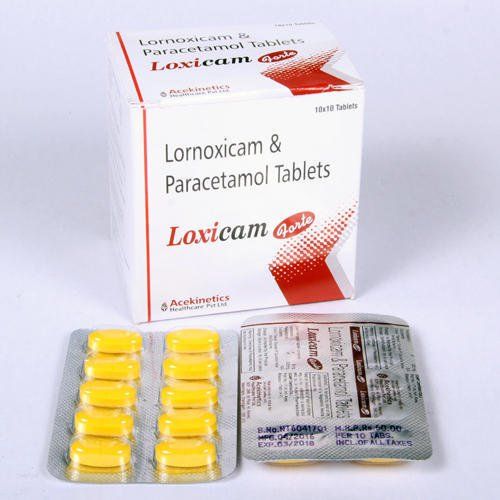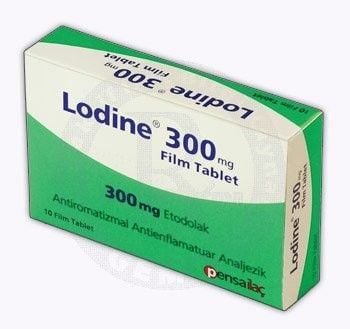This is an automatically translated article.
Bextra pain reliever with the active ingredient Valdecoxib belonging to the non-steroidal anti-inflammatory group has been completely withdrawn in the US market due to concerns about negative effects on patient health. So why is the pain reliever Bextra recalled?
1. What is Bextra?
Bextra drug containing the active ingredient Valdecoxib (a non-steroidal anti-inflammatory drug) was completely withdrawn from the US market in 2005. The effects of Bextra include anti-inflammatory, analgesic and antipyretic, used in Osteoarthritis, rheumatoid arthritis in adults, or menstrual pain relief in women.
In addition, Bextra may also be used for other purposes not mentioned in the instructions for use.
2. What should be done before taking Bextra?
The manufacturer of the painkiller Bextra has announced a voluntary recall of the drug from the US market. This recall is due to safety concerns about the increased risk of cardiovascular events (including myocardial infarction and stroke) in patients taking non-steroidal anti-inflammatory drugs (Bextra belongs to the anti-inflammatory class). COX-2 selective nonsteroidal anti-inflammatory drug) and concerns about the increased risk of rare but serious skin reactions with Bextra.
Patients should not take Bextra without informing their doctor about a history of asthma, urticaria or allergic reactions after taking the following drugs:
Active sulfa-based ingredients such as Sulfamethoxazole (Bactrim, Septra, Gantanol) or Sulfisoxazole (Gantrisin); Aspirin or another NSAID such as Celecoxib (Celebrex), Ibuprofen (Motrin, Advil, Nuprin), Naproxen (Aleve, Naprosyn, Anaprox), Ketoprofene (Orudis KT, Orudis, Oruvail), Diclofenac (Voltaren, Cataflam), Diflunisal (Dolobid) , Etodolac (Lodine, Lodine XL), Fenoprofen (Nalfon), Flurbiprofen (Ansaid), Indomethacin (Indocin), Ketorolac (Toradol), Meloxicam (Mobic). Patients with the above history may experience similar reactions when using Bextra.
Bextra is not suitable for pain relief in patients after coronary artery bypass graft (CABG) surgery. The use of Bextra for these conditions increases the incidence of cardiovascular events and surgical site infections. Patients should talk to their doctor before taking Bextra if treating CABG-related pain.
Before taking Bextra, please tell your doctor if you have any of the following problems:
Smoking; Alcoholism; stomach ulcers or bleeding; Have liver or kidney disease; Asthma; Congestive heart failure ; Edema or increased fluid retention; Heart-related diseaes; Hypertension; blood clotting disorders or are taking anticoagulants such as warfarin (Coumadin); Are taking a steroid medicine such as Prednisone, Methylprednisolone, Prednisolone... The patient may not be able to take Bextra, or the doctor may require a dose adjustment or special monitoring during treatment if there are any have any medical conditions or are taking any of the medications listed above.
Bextra is on the FDA pregnancy category C category. This means that it is not known whether Bextra will harm an unborn baby. However, this product should not be used in late pregnancy, as it may affect the formation of the fetal heart. Patients should absolutely not use Bextra without first talking to their doctor about being pregnant or planning to become pregnant while taking the drug. At present, there are no data showing that Bextra is excreted in human milk, so women who are breastfeeding should not take Bextra without talking to their doctor.
Patients over 65 years of age may be at increased risk for the side effects of Bextra . This subject needs to use the drug at a lower dose than usual or have a special monitoring regime during treatment.
3. Instructions for using Bextra . pain reliever
Patients need to use Bextra exactly as directed by the doctor. If the problem is still unclear, please talk to your doctor or pharmacist. When taking each dose of Bextra, the patient needs to take a full glass of water. Bextra can be taken with or without food or milk. Store Bextra at room temperature, away from moisture and high temperatures. Patients who miss a dose of Bextra should take it again as soon as they remember. If it is almost time for your next dose, skip the missed dose of Bextra and take your next dose at your usual daily dosing schedule. Symptoms of Bextra overdose include drowsiness, nausea, vomiting, and stomach upset. When Bextra poisoning occurs, patients should contact their doctor immediately for proper diagnosis and treatment.
4. Side effects of the drug Bextra
Serious skin reactions have occurred in patients using Bextra pain relievers. These reactions tend to occur during the first 2 weeks of use. However, it can happen at any time during treatment with Bextra. Patients should stop taking Bextra and contact their doctor immediately if they have symptoms such as skin rash, hives, itching, difficulty breathing; swelling of the lips, tongue, or face, or other symptoms of an allergic reaction.
Patients who are taking Bextra should notify their doctor immediately if there are unusual symptoms such as:
Abdominal pain, nausea; vomiting blood; bloody stools, black or tarry stools; Unexplained weight gain; Swelling or fluid retention; Fatigue or coma; skin rash; Itchy; Jaundice or yellow eyes; "flu-like" symptoms; Unusual bruising or bleeding. These symptoms may be early signs of dangerous side effects associated with Bextra.
Some other less serious and more likely side effects of Bextra , including:
Diarrhea; Nausea or stomach pain; Headache
5. Interactions of pain relievers Bextra
Before taking Bextra, tell your doctor if you are taking any of the following medicines:
Aspirin or another salicylate (as aspirin) such as Salsalate (Disalcid), Choline salicylate-magnesium salicylate (Trilisate, Tricosal). ), and Magnesium Salicylate (Doan's, Bayer Select Backache Formula); over-the-counter cough, cold, allergy, or pain relievers that contain Dextromethorphan, Aspirin, Ibuprofen, Naproxen, or Ketoprofen; diuretics such as Furosemide (Lasix), Hydrochlorothiazide (Hydro Diuril), Chlorothiazide (Diuril), Chlorthalidone (Hygroton, Thalitone); ACE inhibitors ; certain steroids such as Prednisone, Methylprednisolone (Medrol), Prednisolone (Prelone, Pediapred) and others; anticoagulants such as warfarin (Coumadin); Diazepam (Valium); Phenytoin (Dilantin); Glyburide (DiaBeta); Birth control pills (Micronor, Triphasil, Levlen); Omeprazole (Prilosec, Zegerid); Lithium (Eskalith, Lithobid); Fluconazole (Diflucan) or ketoconazole (Nizoral). Your doctor may not prescribe Bextra, or sometimes require a dose adjustment or special monitoring during treatment, when you combine Bextra with any of the above medicines.
Bextra contains the active ingredient Valdecoxib (a non-steroidal anti-inflammatory drug). The use of the drug can cause unwanted side effects. Therefore, patients should strictly follow the instructions of the doctor, pharmacist to have the most effective way to use the drug.
Follow Vinmec International General Hospital website to get more health, nutrition and beauty information to protect the health of yourself and your loved ones in your family.
Please dial HOTLINE for more information or register for an appointment HERE. Download MyVinmec app to make appointments faster and to manage your bookings easily.
Reference source: drugs.com













